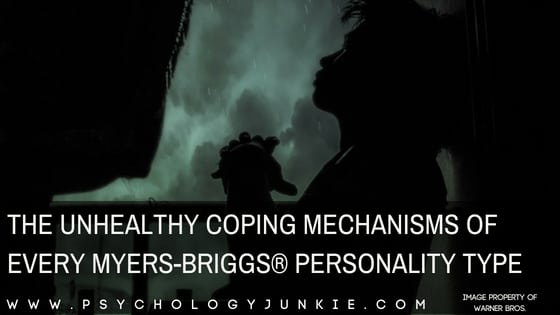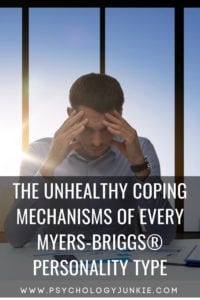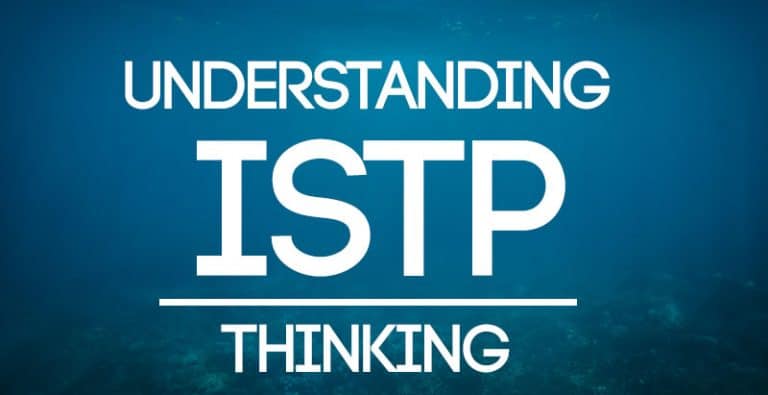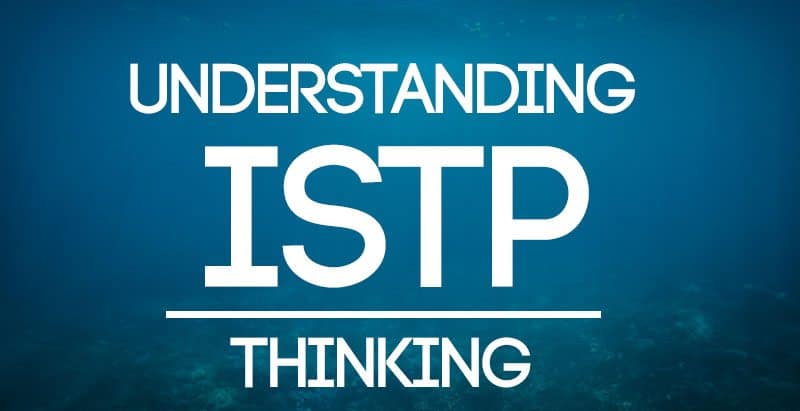The Unhealthy Coping Mechanisms of Every Myers-Briggs® Personality Type
In the personality community, we talk a lot about the idealized versions of our types. The INFJ is mystical, compassionate, empathic. The ESTJ is a leader, strong, capable, logical. While it’s amazing to know all the positive qualities of each type, sometimes there are not-so-positive qualities that overtake us when we feel that our ego is threatened. Let’s take a look at some of the ways each personality type tries to defend their ego.
Not sure what your personality type is? Take our new personality questionnaire here. Or you can take the official MBTI® here.

Signs You Might Be Using Unhealthy Coping Mechanisms, Based On Your Personality Type
ISTJ Unhealthy Coping Mechanisms
When ISTJs are feeling insecure or worried about looking bad, they can slip into what I call ‘ego-defense mode.’ In this state, they might get naggy, gloomy, or complain a lot. They tend to stick to their routines and insist that others follow those same routines. Instead of being open to new ideas, they shut down possibilities and become a stickler for the rules. Stress them out enough, and it’s not uncommon for them to deal with headaches, stomach issues, or nausea. The kicker? Like most of us, they usually don’t realize they’re doing this to protect their ego. Sometimes, it’s their way of asking for help without really asking for it—or maybe just trying to dodge the mountain of tasks they’ve piled on themselves. Outwardly, they might act like they’ve got everything under control, but that confidence can sometimes look more like arrogance. Inside, they’re scrambling to stay ahead.
On the flip side, healthy ISTJs are much more laid-back about imperfections. They know they don’t have to be right all the time and are cool with hearing other people’s perspectives. No need to fake knowing everything. They’re comfortable admitting when they’ve slipped up and don’t get rattled by a little uncertainty. As they grow, their feeling and intuition get stronger too, which makes them more open-minded, creative, and empathetic.
Unhealthy ISTJs:
-
- Can get naggy, gloomy, or overly critical when stressed.
- Get stuck in routines and nitpicky behavior
- Use these behaviors (sometimes unconsciously) to protect their ego.
- Act confident but may come off as arrogant.
Healthy ISTJs:
-
- Relax about not being perfect.
- More open to other viewpoints.
- Own their mistakes without stress.
- Grow into more empathetic and creative thinkers.
Related: Here’s Your Secret Strength, Based On Your Personality Type
ISFJ Unhealthy Coping Mechanisms
When ISFJs are feeling insecure, uncertain, or criticized, they sometimes slip into an ‘ego-defense mode.’ Suddenly, they’re complaining, nagging, and exhausted, with every ache and pain magnified. Headaches? Check. Muscle aches? Check. Stomach in knots? Yep, that too. The problem is that they often refuse to rest, even though they desperately need it. This behavior isn’t always conscious—it’s their way of getting people to help without outright asking for it. Or maybe they’re hoping to drop some of their endless responsibilities without feeling guilty. Change? No thanks. In this mode, they try to lock everything down and do all their tasks to perfection. And during these times, they might be a little more judgmental than usual.
But when ISFJs are in a healthy place, they’re much more relaxed. They no longer feel like they have to be perfect or endlessly selfless to gain approval. They’re still committed to their loved ones, but they also know how to take care of themselves. Instead of trying to handle everything solo, they’re comfortable asking for help when needed. Change? It’s still not their favorite, but they can handle it better. As they grow, they start balancing their sensing and feeling with a bit more thinking and intuition. This opens them up to being more adaptable, innovative, and even objective when needed.
Unhealthy ISFJs:
-
- Tend to complain, nag, and feel exhausted when stressed.
- Experience physical symptoms like headaches, muscle aches, or stomach issues.
- Refuse to rest, hoping others will help or to lighten their load without asking.
- Fear change and strive for perfection, becoming more judgmental.
Healthy ISFJs:
-
- Relax about appearing perfect or selfless.
- Balance commitment to others with self-care.
- Ask for help when they need it instead of doing everything alone.
- Grow more adaptable, innovative, and comfortable with change.
Related: Here’s What You’re Observant Of, Based On Your Personality Type
ESTJ Unhealthy Coping Mechanisms
When ESTJs get hit with a wave of insecurity, overwork, or uncertainty, they can enter their own version of an ego defensive mode. During this time, they might become critical, naggy, commanding, and even self-pitying. It’s not uncommon for them to develop a sudden awareness of every little ache and pain—stomach aches, headaches, muscle tension—you name it. These physical symptoms often become their go-to excuse to step back from their responsibilities or avoid the source of their stress. If things get really bad, they might start belittling others they see as weak or lazy, pointing out every perceived flaw. They can even take on a bit of a ‘martyr complex,’ feeling like they’re the only ones being responsible while everyone else is slacking off.
On the flip side, healthy ESTJs are a lot more relaxed and self-aware. They’re open to hearing different opinions and don’t feel the need to be right all the time. Instead of worrying about looking like they know everything, they embrace the idea that there’s always something new to learn. They’re also less interested in pointing out every little flaw they see in others, focusing more on what really matters. They enjoy spending time with people who have diverse perspectives, which helps them develop their intuition and feeling functions. This makes them more adaptable, innovative, and empathetic.
Unhealthy ESTJs:
-
- Can become critical, nagging, and self-pitying when stressed.
- Experience physical symptoms like stomach aches, headaches, and muscle tension.
- Use these symptoms as a way to shed responsibilities or withdraw from stress.
- May belittle others and develop a ‘martyr complex’ when severely unhealthy.
Healthy ESTJs:
-
- Open to different opinions and don’t always need to be right.
- Comfortable not knowing everything and eager to keep learning.
- Less focused on pointing out flaws unless it’s really important.
- Grow more innovative, adaptable, and empathetic through diverse experiences.
ESFJ Unhealthy Coping Mechanisms
When ESFJs feel threatened, criticized, or unsupported, they can slip into an ‘ego-defense mode.’ During this time, they may become overly critical, complaining, or even self-pitying. Stress kicks in, and their inferior function, Introverted Thinking, erupts in unpredictable ways. This can make them more self-critical or critical of others; nitpicking people’s logic, finding fault in everyone and everything. Often, this behavior is a way of protecting themselves, but they might not realize it, causing more harm than good in the end. At their core, they fear for the safety of their relationships, driving them to overcompensate by trying to hold everything together.
Healthy ESFJs, on the other hand, recognize their strengths and weaknesses and don’t feel the need to always appear perfect. They handle constructive criticism with grace, seeing it as an opportunity for growth. They no longer feel like they need to be the constant ‘social glue,’ accepting that not every situation needs immediate fixing. By developing their intuition and thinking processes, they become more adaptable and objective, with less fear of change or criticism.
Unhealthy ESFJs:
-
- Critical, complaining, or self-pitying.
- Driven by fear to overcompensate or demand validation.
- Unconsciously seeking protection by controlling everything.
Healthy ESFJs:
-
- Accept imperfections and constructive criticism.
- More adaptable and open to change.
- Balance social harmony with objectivity and self-awareness.
ISTP Unhealthy Coping Mechanisms
When ISTPs feel stifled, trapped, or insecure, they often go into ‘ego-defense mode.’ They become overly withdrawn, reclusive, and can fixate on their own projects to avoid engaging with the world. They also get critical of others, prematurely dismissing different perspectives. Deep down, they fear being tied down or feeling incompetent, which makes them shut down emotionally and focus solely on what they can control.
Healthy ISTPs, however, are much more relaxed. They don’t feel the need to always be right or to prove their competence to everyone. They enjoy life, take risks in moderation, and learn from a diverse group of people, even though they still need their alone time. By developing their feeling and intuitive processes, they become more empathetic and aware of the bigger picture.
Unhealthy ISTPs:
-
- Withdraw, become critical, and fixate on projects to avoid stress.
- Dismiss others’ ideas, fearing being tied down or incompetent.
- Feel trapped and insecure
Healthy ISTPs:
-
- Embrace learning from others and accept imperfection.
- Open up to new ideas, empathy, and broader perspectives.
- Balance alone time with care and concern for their relationships.
Related: 10 Things You Should Never Say to an ISTP
ISFP Unhealthy Coping Mechanisms
When ISFPs feel insecure, trapped, or threatened, they can go to great lengths to protect their ego (like any type can). During these times they might chase after excitement, become intensely emotional, or act on impulse. They feel like they need to shake things up—either by diving into some thrilling adventure or by tackling new projects. The problem? They get bored fast. Halfway through these projects, they lose interest and leave them unfinished, which only adds to their frustration. At their worst, they might feel like they’re the only ones trying to do the right thing, slipping into a ‘martyr’ complex where they believe no one really understands them or their struggles. They might point fingers at others, seeing fault and error in everyone around them.
On the flip side, healthy ISFPs are much more open-minded. They don’t feel the need to judge other people’s life choices, as long as no one’s getting hurt. They’ve got a clear sense of their strengths and weaknesses and don’t feel like they need to be perfectly righteous all the time. This doesn’t mean they compromise their values, but they’re less worried about appearances. As they grow, they also develop their intuition and thinking, which helps them see the deeper meaning behind things and make more balanced, wise decisions.
Unhealthy ISFPs:
-
- Seek thrills and act on impulse when stressed.
- Start projects but leave them unfinished, leading to frustration.
- Can develop a ‘martyr’ complex, feeling misunderstood and isolated.
Healthy ISFPs:
-
- Open-minded and accepting of others’ choices, as long as no one is harmed.
- Aware of their strengths and weaknesses, without the need to appear perfect.
- Balance their values with a more objective, deeper understanding of the world.
ESTP Unhealthy Coping Mechanisms
When ESTPs feel insecure, trapped, or stifled, they may act out in ego-defensive ways. During these times, they often become thrill-seekers, impulsive, and maybe even physically aggressive. They might adopt a daredevil attitude, pushing the limits just to prove their strength, but not always in the healthiest way. Anger and frustration build up, and before they know it, they’re punching walls or pillows to release all that pent-up aggression. Overindulgence becomes their go-to: too much food, too many drinks, or just diving headfirst into sensory overload. In this phase, they get super competitive, needing to be ‘right’ or stronger than everyone else. Deep down, they might feel like they’re losing control, but good luck getting them to admit it.
On the flip side, healthy ESTPs are still fun-loving and adventurous, but they also think before they leap. They know their strengths and weaknesses and aren’t afraid of a little constructive criticism. They’re happy to sit back and observe when needed, without feeling like they have to be the center of attention or the most daring person in the room. As they grow, they develop their feeling and intuitive sides, becoming more empathetic, thoughtful, and insightful.
Unhealthy ESTPs:
-
- Thrill-seeking, impulsive, and sometimes physically aggressive when stressed.
- Overindulge in food, drink, or sensory experiences to cope.
- Super competitive, always needing to prove themselves and feel in control.
Healthy ESTPs:
-
- Fun-loving and adventurous but think before they act.
- Open to constructive criticism and comfortable being in the background.
- Grow more empathetic, conscientious, and thoughtful over time.
ESFP Unhealthy Coping Mechanisms
When ESFPs feel trapped, insecure, or like life’s no longer fun, they can spiral into ‘ego-defense mode.’ Suddenly, they’re impulsive, thrill-seeking, and quick to anger. To shake off their insecurity, they might dive into risky behavior or tell exaggerated stories to keep up appearances. They start projects with enthusiasm but quickly lose interest, leaving things half-finished. This only adds to their frustration, and soon they find themselves overindulging in TV, food, or sensory overload. They might feel like they’re spinning out of control, but they’ll often be afraid to admit it.
On the flip side, healthy ESFPs are still fun-loving and easygoing but are also more thoughtful about what’s safe and what isn’t. They’re accepting of people with different views and don’t get offended by constructive criticism or differing opinions. They’re comfortable being in the background when needed and enjoy moments of quiet reflection. They don’t feel like they have to be the funniest or most daring person in the room. Instead, they find joy in the simple pleasures of life. As they grow, they develop their thinking and intuition, becoming more objective, organized, and capable of seeing tasks through to the end.
Unhealthy ESFPs:
-
- Impulsive, thrill-seeking, and prone to risky behavior when stressed.
- Start projects but quickly lose interest, leading to frustration.
- Overindulge in TV, food, or sensory activities to cope.
Healthy ESFPs:
-
- Fun-loving but thoughtful about what’s safe and what isn’t.
- Accepting of others’ opinions and open to constructive criticism.
- Find joy in simple pleasures and become more organized and capable of finishing tasks.
INTJ Unhealthy Coping Mechanisms
When INTJs feel like their independence is being threatened or their competence is under fire, they can dive into ‘ego-defense mode.’ During this time, they shut down emotionally, using cold logic to sidestep anything that makes them feel uncomfortable or inadequate. They become laser-focused on tasks, obsessively perfectionistic, convinced that their way is the only way. Their patience wears thin, and they can get overly critical and stop really listening to others. At their worst, they start feeling like misfits—convinced that nobody gets them and everyone else is just ‘wrong’ or ineffective.
On the flip side, healthy INTJs are much more accepting of people as they are. They don’t feel the need to nitpick others’ flaws unless it’s truly necessary. They’re comfortable not always being ‘right’ and are open to learning from people who see the world differently. With a clear understanding of their own strengths and weaknesses, they become more compassionate and understanding of others. By developing their feeling and sensing functions, they’re better able to empathize with people and take care of their physical health and surroundings.
Unhealthy INTJs:
-
- Shut down emotionally and use logic to avoid discomfort.
- Become perfectionistic and task-obsessed, feeling their way is the only way.
- Get impatient, critical, and feel like no one understands them.
Healthy INTJs:
-
- Accept people as they are and don’t nitpick unnecessarily.
- Comfortable not always being right and open to learning from others.
- More empathetic, understanding, and in tune with their physical needs and surroundings.
Related: 7 Reasons Why You Need an INTJ Friend in Your Life
INFJ Unhealthy Coping Mechanisms
When INFJs feel threatened, insecure, or pressured to conform, they can slip into ‘ego-defense mode.’ In this phase, they shut down emotionally, becoming robotic in their actions and decisions. Perfectionism kicks in, and they become impatient, hoping that by accomplishing their vision, they can prove their worth. They often misinterpret others, assuming people dislike or misunderstand them, which leads to them becoming unusually judgmental and self-righteous. They start to see themselves as misunderstood misfits, torn between caring about others’ opinions and wanting to cut ties with any dependence on others.
On the flip side, healthy INFJs are more at peace with the fact that not everyone will like or understand them, and that’s okay. They can enjoy downtime without feeling guilty that they’re not working on their vision 24/7. They love learning from people with different viewpoints and become more open-minded and accepting as a result. Instead of labeling others as superficial, they realize they might not have the whole picture. As they develop their thinking and sensing sides, they become more objective and aware of their physical needs and surroundings.
Unhealthy INFJs:
-
- Shut down emotionally and become robotic and perfectionistic.
- Misinterpret others, becoming judgmental and feeling like misunderstood misfits.
- Torn between caring about others’ opinions and cutting ties with dependence.
Healthy INFJs:
-
- Accept that not everyone will like or understand them, and that’s okay.
- Enjoy downtime without feeling guilty and learn from people with different perspectives.
- More objective and in tune with their physical needs and environment.
Related: 7 Things That INFJs Experience As Children
ENTJ Unhealthy Coping Mechanisms
When ENTJs feel vulnerable, insecure, or like they’re not measuring up, they can slip into ‘ego-defense mode.’ In this phase, they become hyper-critical, combative, and shut off their emotions to over-rationalize everything—even when it doesn’t make sense to. They tend to come across as perfectionistic and condescending, projecting strength to hide any signs of weakness. At their worst, they may even try to make others feel incompetent just to boost their own sense of power. For them, showing vulnerability feels like the ultimate failure, so they’ll do everything they can to hide it, even when they’re feeling unsure on the inside.
On the flip side, healthy ENTJs are okay with not having all the answers. They understand that life is full of ambiguity and they embrace it instead of fighting it. They don’t feel the constant need to defend their ego, and they enjoy learning from different perspectives and experiences. As they develop their sensing and feeling sides, they become more detail-oriented, empathetic, and better able to connect with others on a deeper level.
Unhealthy ENTJs:
-
- Hyper-critical, combative, and over-rationalize everything.
- Perfectionistic and condescending to hide their insecurities.
- May try to make others feel incompetent to feel stronger.
Healthy ENTJs:
-
- Comfortable with ambiguity and not having all the answers.
- Don’t feel the need to constantly defend their ego.
- More empathetic and detail-aware, enjoying learning from others.
ENFJ Unhealthy Coping Mechanisms
When ENFJs feel insecure, criticized, or like they’ve been wronged, their ego defense strategies come into play. They’ll repress their emotions, almost like flipping a switch, and start focusing on logic and facts, trying to convince themselves that everything’s just fine. But over time, they become more critical and rigid. They crave affirmation from others but aren’t sure how to ask for it, which leads to a feeling of sinking into a negative spiral. This can be really frustrating—not just for them, but for everyone around them.
On the flip side, healthy ENFJs don’t rely on outside validation to feel secure in themselves. They can take constructive criticism without taking it personally and understand that not everything can be controlled or fixed socially. They accept that total harmony isn’t always possible, and that’s okay. By balancing their strong feeling and intuitive sides with their sensing and thinking functions, they become more objective, detail-oriented, and in tune with their physical needs.
Unhealthy ENFJs:
-
- Repress emotions and focus on impersonal facts to cope.
- Become more critical and rigid over time.
- Want affirmation but struggle to ask for it, leading to frustration.
Healthy ENFJs:
-
- Accept themselves without needing constant validation.
- Handle constructive criticism without taking it personally.
- More objective, detail-oriented, and comfortable with social imperfections.
Related: How ENFJs Handle Conflict
INTP Unhealthy Coping Mechanisms
When INTPs feel trapped, threatened, or worried about looking incompetent, their unhealthy coping mechanisms can rapidly transform their personality. In this phase, emotions get tossed aside as irrelevant, and they try to logically rationalize everything—even when logic doesn’t apply. They might retreat into their own little world, becoming more and more reclusive to avoid dealing with people, power struggles, or the fear of looking foolish. They get fixated on getting every little detail right, sometimes acting more like meticulous SJs than the big-picture thinkers they are.
On the flip side, healthy INTPs are cool with not knowing everything and realize that not everything in life can be solved with logic. They don’t feel like they have to be the smartest person in the room all the time and actually enjoy learning from a variety of people. As they develop their sensing and feeling sides, they become more in tune with their physical needs, the world around them, and are more empathetic and nurturing to others.
Unhealthy INTPs:
-
- Dismiss emotions and over-rationalize everything, even when it doesn’t make sense.
- Withdraw from others to avoid power struggles or looking incompetent.
- Fixate on details, sometimes resembling an SJ type more than their usual abstract-thinking selves.
Healthy INTPs:
-
- Accept that they don’t know everything and that not all problems are logical.
- Comfortable learning from others without feeling the need to be the smartest in the room.
- More in tune with their bodies, surroundings, and more empathetic and nurturing.
Related: The Unhealthy INTP
INFP Unhealthy Coping Mechanisms
When INFPs feel insecure, threatened, or trapped, they can start playing ego defensive games. In this phase, they’ll often hide their true feelings, trying to appear tougher and more invulnerable than they actually feel. They might misinterpret other people’s words, assuming they’re disliked or being picked on. They start filtering out anything logical or positive and latch onto what feels negative. As things escalate, they may feel like they’re the only ones truly standing up for what’s right, which can make them self-righteous or intolerant of others.
On the flip side, healthy INFPs are gentle and non-pushy in their opinions and values. They understand that everyone’s entitled to their own perspective and don’t feel the need to force their ideals on anyone (unless someone’s actually harming others). They don’t feel like they have to constantly defend their image and are open to hearing different viewpoints. As they grow, they learn to balance their feeling and intuition with sensing and thinking, making them more grounded, detail-oriented, and able to look at things with a logical eye.
Unhealthy INFPs:
-
- Hide their feelings to appear tougher than they are.
- Misinterpret others, assuming they’re disliked or being targeted.
- Become self-righteous, feeling like they’re the only ones standing up for what’s right.
Healthy INFPs:
-
- Gentle and respectful of others’ opinions without pushing their own.
- Don’t feel the need to defend their image or constantly prove themselves.
- More balanced, grounded, and able to approach things with logic and attention to detail.
Related: The Childhood Struggles of INFPs
ENTP Unhealthy Coping Mechanisms
When ENTPs feel threatened, stifled, or worried, they become super critical and love to argue, rationalizing everything they do—even their bad habits. They feel this constant pressure to appear perfect so no one sees their inner insecurity or fear of failure. They’ll jump from idea to idea, trying to prove their originality, but often end up with a trail of half-finished projects. Unaware of how they’re coming across, they can seem tactless and insensitive to the people around them.
On the flip side, healthy ENTPs don’t feel the need to constantly prove how original or different they are. They let go of the pressure to defend themselves and don’t do things just to appear innovative. They see the value in tried-and-true methods and are happy to mix those with their creativity. They’re open to other people’s perspectives and ideas without feeling the need to always be right. As they stop suppressing their feeling and sensing sides, they become more empathetic, detail-oriented, and aware of how their actions affect others.
Unhealthy ENTPs:
-
- Argue and criticize to cover up insecurity, rationalizing even bad habits.
- Jump from idea to idea but struggle to finish projects.
- Can come across as tactless and insensitive to others’ feelings.
Healthy ENTPs:
-
- Comfortable without having to prove their originality or innovation.
- Blend tried-and-true methods with creativity and see the value in others’ perspectives.
- More empathetic, detail-aware, and in tune with how their actions impact others.
ENFP Unhealthy Coping Mechanisms
When ENFPs feel insecure, criticized, or like their values are under attack, they try to suppress their true feelings and come across as more logical and argumentative than usual. They want to prove their originality and uniqueness, so they jump into lots of different ideas, but often struggle to see any of them through to the end. While they see themselves as sensitive, they might misinterpret what others say, filtering everything through their own experience and missing the real intent. This can make them seem judgmental or self-righteous to those who don’t understand them.
On the flip side, healthy ENFPs are not only in tune with their own emotions but also the true emotions of others. They don’t feel the need to constantly prove their originality and are okay with being wrong or allowing others to have different views. They enjoy learning from all kinds of people and are at peace with methods that differ from their own. They also start appreciating their thinking and sensing sides more, which helps them become more objective, organized, and capable of completing what they start.
Unhealthy ENFPs:
-
- Repress their feelings and become more logical and argumentative.
- Jump from idea to idea, struggling to finish projects.
- Misinterpret others’ intentions and can seem judgmental or self-righteous.
Healthy ENFPs:
-
- In tune with their own and others’ emotions.
- Comfortable being wrong and accepting opposing views.
- More objective, organized, and capable of completing tasks.
What Do You Think?
Was this helpful? Unhelpful? Do you have any thoughts to add? Let us know in the comments!
Find out more about your personality type in our eBook, Discovering You: Unlocking the Power of Personality Type.
This article contains affiliate links.














Hi Susan,
Wow! This is extremely helpful!
As an ENFP, I would add that when our ideas are not validated and at least considered, and we are unhealthy, we tend to feel hopeless, ideas might shut down completely, and any desire to be reasonable, or be around the people we see as invalidating is flattened.
A healthy ENFP would be able to handle the rejection of their ideas, because they do not need approval from others. They are grounded in self-compassion and are not trying to fix the world, but relax into the flow of the moment. Ideas flow, and if rejected, no worries, other ideas will come:)
that’s a very interesting input. I am an ENFP and I indeed tend to be extremely debative and use logic to desperately prove the person wrong. I also tend to be self-righteous. People never expect such opinions and behaviours from me because I always come across as funny and open-minded, so I notice that my friendships simply cease after a discussion, or I never see the person again. But people, of course, never show that they didn’t appreciate the talk and I regret their hypocrisy. Given that I am unapologetically myself, I expect people to be true to me but they almost never are.
The INTJ’s section is undeniably accurate. Being an INTJ myself I can agree to the point that even though INTJ’s are mostly correct with certain topics, there are wide variety of other subjects that we have no idea about. Yes, we can be wrong, we can be less or not informed about something, and that’s totally fine.
Personally, I understand that being under immense pressure changes my personality to that of an unhealthy INTJ, but when I am aware of my negative change in behaviour, I pull back to reflect on my actions and to collect my bearings.
Hi Susan,all these inputs are interesting to know for all the types and get to really take a great check on myself. I’m a fellow female INTJ and when I go unhealthy, just as you have stated for one of the points, one of my symptoms will be extremely perfectionistic and task-focused,though I won’t feel that my way is the only way out of it. But I would like to just add on a bit, not sure about other INTJs, but for me,another symptom of mine is self-destruction,whereby I will become impulsive when doing things.